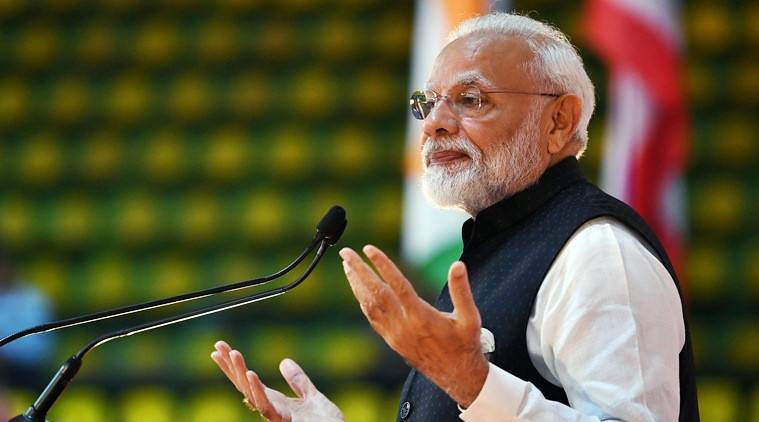- India
- International
By not joining RCEP, India sends signal of shrinking possibilities — at home and abroad
Don’t convert India’s global weakness into an ideological virtue. The truth is that India’s domestic agenda of reform will, in most respects, need to be the same, RCEP or no RCEP
 Given the unanimity against the RCEP, Modi had no choice. (File)
Given the unanimity against the RCEP, Modi had no choice. (File)
India’s suspension of its bid to join the Regional Comprehensive Economic Partnership should be an opportune moment to take stock of India’s place in the world economy. Both the supporters of the decision and those disappointed by it are, in fact, arguing on the same ground. For supporters of the RCEP, the decision not to join it seems like an admission of defeat, an acknowledgement that India is simply not in a position to compete strongly in the global economy, without risking serious trade imbalances and domestic economic disruption. Those opposing it are also, for the most part, saying the same thing: India is not ready. The price of joining will be too high.
Most of us who, on balance, prefer freer trade must acknowledge how the global context has changed. It is true, as Macaulay once said, “free trade, one of the great blessings which a government can confer upon its people, is in every country unpopular.” But if there is one lesson we need to learn from the last decade, it is that the political backlash against globalisation needs to be managed. If as sophisticated and historically open an economy as the United States can experience as deep a backlash against trade imbalances, why expect India to be any different? Indeed, there is a political case to be made for going slow and not setting yourself up for a backlash. Given the unanimity against the RCEP, Modi had no choice.
The relationship between trade and strategy needs to be rethought. The honest truth is that our enthusiasm for FTAs was often driven by strategy more than economics. During the 2000s, that was the flavour of thinking in India. We somehow thought that the strategic tail could wag the economic dog. But the idea that you can define strategic ambitions far in excess of your economic clout is deeply misplaced, and all our pretensions in that regard, like “Look East,” now “Indo-Pacific”, always had a ring of exuberant hollowness to them. You can bank on strategic narratives to solve economic problems only so much. In one sense, then, there is a nice modesty and consistency to the Swadeshi Jagran Manch vision of things. They don’t want India dependent on foreign capital. They want India to grow from its own savings. But nor do they have ambitions of a global footprint.
Given the political objections, and uncertain economics, not joining the RCEP may have been the right thing to do. But the incongruity of not joining is greater for Modi, because he wants all three things simultaneously: Dependence on foreign capital, and an exaggerated sense of India’s power, and yet a recoiling from trade openness. You cannot do the third, without affecting the first two. The best thing Modi might have done for India is that he has made it clear that we are, in the end, a modest power with much to be modest about.
The economic gains from those FTAs did not turn out to be as great as India hoped, particularly in employment. Globally, there is no more room for nuanced thinking on the benefits of trade. The idea that trade agreements would, on their own, provoke domestic reform, turned out to be wishful thinking. There is no point denying that the current state of the economy, with its regulatory sclerosis, broken financial system, no serious investment in human capital, infrastructure constraints, is not competitive, and it is hard to see the prospect of the trade deficit correcting that. Reform has its own political economy dynamics that is not going to be easy to circumvent simply in the name of trade. So the risk of ending up in a worse equilibrium exists, where you have opening without reform.

There is also the changing outlook on China. A decade or so ago, when the RCEP talks started, the world was still a place where there was more confidence that the imperatives of economic integration and interdependence would lead China to a path of liberalisation and moderate its global ambitions. But China’s own economic downturn, its turn to nationalism and authoritarianism, places a question mark over the nature of its outward economic engagement. It has a series of instruments with which to maintain its dominance for the foreseeable future, and unless you are sure you have a means of countering them, some prudence might be in order.
This prudence is not a decisive argument against joining. It could be balanced by two other considerations. First, the fact that other Asian powers were quietly facilitating our joining suggests we will forego a loss in standing in the short run. Second, the fact is that there is no seriously new avenue available for trade liberalisation. We have closed off the South Asia route, given our relations with Pakistan. The protectionist sentiment that exists in the US, even beyond Trump, makes it unlikely that multilateral trade liberalisation is going to be an option anytime soon. An FTA with the US, another one of those bad faith arguments the government floats, is also a pipe dream. In any case, a trade agreement with the US or the EU will arguably come with even deeper regulatory intrusions into the Indian economy. So all things considered, even with attendant risks, the RCEP might have been worth it. But if our frank assessment is that we are not in a position to take advantage of the RCEP on the current terms, we should honestly admit that rather than engaging in wishful thinking, openness will solve our problems.
But opponents of the RCEP should acknowledge the truth. The RCEP has been stopped not because there is a coherent alternative vision of India’s development in place. It has been stopped because the whole range of interests, from agriculture to industry, that have made domestic reform difficult have also come out against the RCEP. Don’t convert India’s global weakness into an ideological virtue. The truth is that India’s domestic agenda of reform will, in most respects, need to be the same, RCEP or no RCEP: Cheaper logistics, better human capital, better governance, regulatory certainty, better banking, better forms of urbanisation and so forth. In fact, a more “swadeshi” agenda, ironically, needs even deeper reform since it requires more capacity building.
The consequences of going slow in the RCEP will unfold in time, and depend on what we do now. But the real worry in Modi’s climbdown is not that he turned his back on the RCEP. It is that he is sending a clear signal that India’s economy and politics is so fragile that we should not expect effective reform anytime soon.
This article first appeared in the print edition on November 8, 2019 under the title ‘Closing a door’. The writer is contributing editor, The Indian Express.
EXPRESS OPINION
More Explained
Apr 19: Latest News
- 01
- 02
- 03
- 04
- 05









































